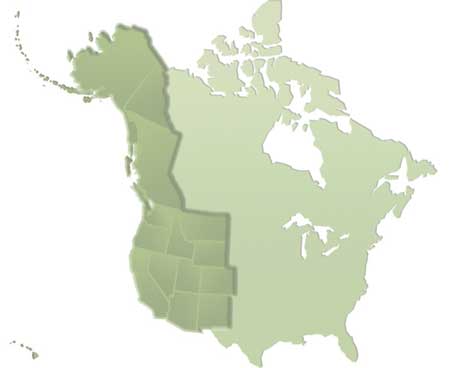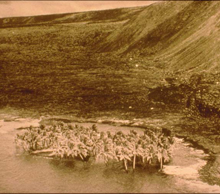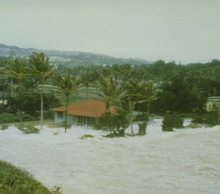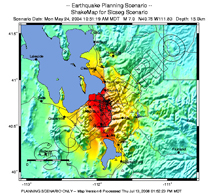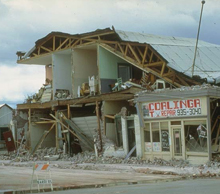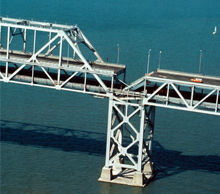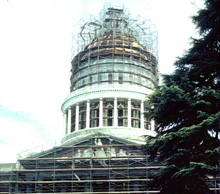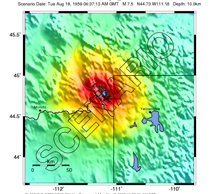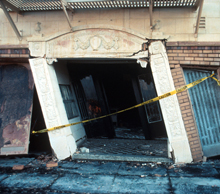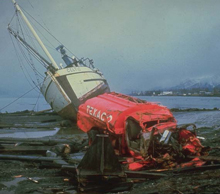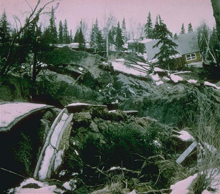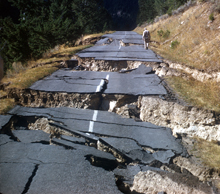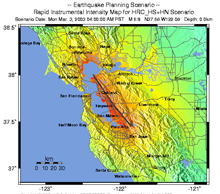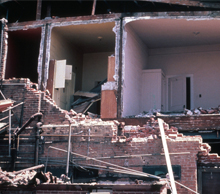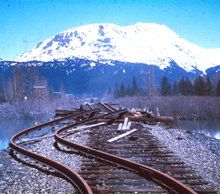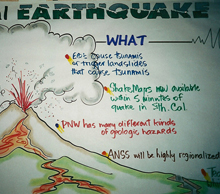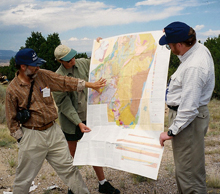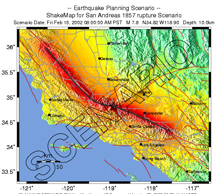Description
A magnitude 7.7 (revised 2018) earthquake off the coast of the Island of Hawaii (the “Big Island”) on November 29, 1975, was felt throughout the island, as well as on Lanai, Molokai, and Oahu. The quake caused extensive ground cracking and 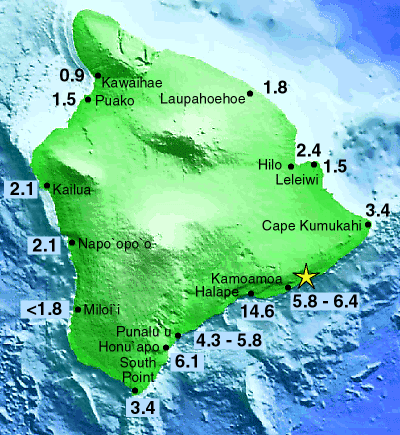 subsidence; in one area, the coast permanently subsided over 11 feet. The quake triggered a near-field tsunami, with waves up to nearly 26 feet in the area of Halape; far-field tsunami waves were recorded in Alaska, California, Japan, and Samoa.
subsidence; in one area, the coast permanently subsided over 11 feet. The quake triggered a near-field tsunami, with waves up to nearly 26 feet in the area of Halape; far-field tsunami waves were recorded in Alaska, California, Japan, and Samoa.
Left: Damage at Punalu’u, on the Big Island of Hawai’i. (Image: Pacific Tsunami Museum Archives)
Impact
Two campers were killed on the Island of Hawaii at Halape Beach Park, a remote site located at the base of a large cliff. An earlier, smaller earthquake caused some of the campers to move to a coconut grove closer to the beach because of falling rocks, and the second, larger earthquake caused the remaining campers to run towards the shore, placing everyone squarely in the path of the tsunami, which began rising within 10-20 seconds after the earthquake. One person’s death was caused by being hit by a rock while in the water; the other person’s body was never found. Nineteen of the surviving 30 people were injured, and all related harrowing stories of the experience.
The earthquake caused little structural damage to buildings, beyond cracks, wall separation and equipment damage, although five poorly constructed or old houses were demolished; it was the tsunami that caused the majority of destruction. Property damage was estimated at $17.1 million (2011 USD).

Above: Tsunami wave heights on the Island of Hawaii. (Image: USGS Hawaiian Volcano Observatory; newspaper clippings: Earthquake Engineering Research Institute)
Lessons Learned
Because the State of Hawaii is made up of islands, most of its development is found is within five miles of a shoreline. This raises special challenges for officials to warn residents and tourists of near-field tsunamis. No withdrawal of water was observed with this tsunami, and it took only 20 minutes to reach Hilo, 27 minutes to Kailua-Kona, and 49 minutes to Honolulu. At the time, the tsunami siren system was designed for far-field tsunamis, not for those that occurred with only a few minutes warning. As a result, some sirens were not activated until officials started receiving reports of wave action, and others failed to sound because of power outages caused by the earthquake.
References and Additional Resources
USGS Hawaiian Volcano Observatory: Tsunami Generated by Magnitude 7.2 Earthquake on November 29, 1975
http://hvo.wr.usgs.gov/earthquakes/destruct/1975Nov29/tsunami.html
USGS Historic Earthquakes: Kalapana, Hawaii
http://earthquake.usgs.gov/earthquakes/states/events/1975_11_29.php
https://earthquake.usgs.gov/earthquakes/eventpage/official/19751129144740_9/executive
Earthquake Engineering Research Institute: Archive of News Clippings
https://www.eeri.org/lfe/pdf/USA_Kalapana_HI_NewsClippings_Feb76.pdf
University of Washington: 1975 Hawaiian Tsunami
http://www.ess.washington.edu/tsunami/general/historic/hawaii75.html


